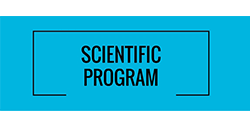Joao Henrique Tavares
Euclid University, Gambia
Title: How the effects of climate change are a contributing issue in the escalation and development of food insecurity, terrorism and migraton in the SSA and MENA regions
Biography
Biography: Joao Henrique Tavares
Abstract
The objective of this study is to understand the linkage between climate change, drought, desertification, agriculture, access to land, food price, food security, energy available, migration, impoverishment, armed conflicts, limited access to mitigation (capital, markets, infrastructure and technology) and governance. Four case studies are analyzed: Lake Chad (Nigeria, Niger, Cameroon and Chad); Darfur and South Sudan; Iraq and Syria. Climate change acts as a threat multiplier together with ineffective responses by state security forces, a lack of traditional conflict resolution mechanisms, a lack of government legitimacy, poverty, religion, identity and endemic corruption. With the global warming process, limited access to mitigation, and fragile governance, Sub-Saharan and middle east countries will face severe social, economic and security problems due to the deterioration of their food security and increasing the risk of armed conflicts. It will cause thousands of deaths and massive migration with international security consequences. Closer partnerships between humanitarian and development actors and international financial institutions will be important to support conflict and protracted crisis-affected communities and help address root causes, prevent further fragility and instability, and create durable solutions. Collaboration between UN agencies and the World Bank is already being strengthened in this regard. Contributing to food security and sustaining peace will require a more deliberate, preventative approach, moving away from short-term and output-based interventions to longerterm, sustainable and collective outcomes, with a strategic focus on resilience building in line with the new way of working across humanitarian, development and peace pillars. In conflict and protracted crisis contexts, a boost in development action to help people become self-reliant as quickly as possible and build resilience to future shocks is vital. This will require more risk tolerance; earlier engagement; more flexible financing; and context-adaptable, conflict-sensitive programming.

